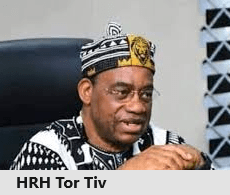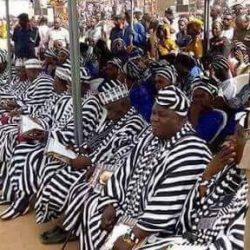In Nigeria, traditional rulers have historically played a significant role in the administration and security management of their communities. Despite the modernization of governance, their influence remains crucial, particularly in areas of conflict resolution and maintaining order at the grassroots. The need to integrate traditional rulers into contemporary security networks is increasingly evident, given the persistent security challenges facing the nation.
Historical Role of Traditional Rulers in Security Management
Before colonialism and the introduction of formal government structures, traditional rulers were responsible for governance, dispute resolution, and security within their domains. They managed security through various indigenous mechanisms, which included vigilante groups and age-grade systems. These rulers were seen as custodians of local culture, ethics, and peace. This made them effective in preventing and managing local conflicts.
As Nigeria evolved, the formal role of traditional rulers diminished, particularly with the adoption of the 1999 Constitution, which does not officially recognize their roles in security matters. However, their informal influence in security matters has persisted, especially at the grassroots level, where their authority is respected and their ability to mediate conflicts remains unmatched.

The Current Security Landscape and Traditional Rulers
With Nigeria facing increasing threats from insurgency, banditry, kidnapping, and communal conflicts, there is an urgent need to re-integrate traditional rulers into the national security framework. These leaders are often the first to detect and neutralize security threats due to their proximity to the people and understanding of the socio-cultural dynamics of their communities.
Traditional rulers continue to play crucial roles in quelling crises and preventing local disputes from escalating into national security threats. For example, in various communal clashes across Nigeria, the intervention of traditional rulers has been pivotal in dousing tensions and restoring peace.
Dr. Bala Usman, a renowned historian, emphasized the importance of traditional rulers in managing crises. According to him, successive governments have realized that traditional rulers can be instrumental in winning the hearts and minds of the populace, especially in times of crisis. This suggests that integrating traditional rulers into security strategies can enhance national stability.
Collaboration Between Traditional Rulers and Security Agencies
The effectiveness of security management in Nigeria often depends on the collaboration between security agencies and traditional rulers. Security agencies, such as the police and military, frequently rely on traditional rulers for intelligence gathering, community engagement, and mediating disputes that could escalate into larger security concerns.
Traditional rulers, being custodians of local customs and values, are well-positioned to assist in neutralizing threats, particularly in rural areas. They have networks that can provide real-time intelligence, which security agencies may otherwise not have access to. This collaboration can be further formalized by giving traditional rulers defined roles within Nigeria’s security architecture.
Challenges and the Need for Constitutional Recognition
Despite their ongoing contributions to security, traditional rulers are not officially recognized in the Nigerian Constitution as security agents. This limits their ability to act within a formal framework and denies them the necessary support and resources to effectively contribute to national security. It is, therefore, an irony that traditional rulers, who are graded and recognized by state governments, are not given a formal role in security management.
This gap in constitutional recognition needs to be addressed. Granting traditional rulers official roles in security management would allow them to work more effectively with government agencies. Their integration into formal security structures could be a game-changer in addressing Nigeria’s complex security challenges.
Reviving Traditional Security Institutions
In the past, traditional security institutions supported governance and security management. These institutions, which included age-grade systems, secret societies, and local vigilantes, played essential roles in maintaining order and ensuring justice. Reviving these structures, while modifying them to align with modern legal and ethical standards, could provide additional support to the existing security apparatus.
Encouraging traditional rulers to monitor activities within their domains and take responsibility for internal security could help address the challenges posed by Nigeria’s heterogeneous communities. Their involvement would ensure that security management is not just reactive but also preventive.
Traditional Rulers as Partners in Security
Traditional rulers remain a vital component of Nigeria’s security management, particularly at the grassroots level. Their continued involvement is crucial for maintaining internal security, especially in rural areas where formal security agencies may have limited reach. Acknowledging their past contributions, it is clear that traditional rulers have played—and will continue to play—essential roles in national security.
To optimize their impact, traditional rulers should be officially recognized and empowered to collaborate more effectively with government and security agencies. This partnership will be instrumental in ensuring that Nigeria can overcome its current security challenges and achieve lasting stability.
The clarion call is for more recognition and integration of traditional rulers into Nigeria’s security strategies, ensuring that their role in maintaining justice, order, and stability is both acknowledged and supported.







